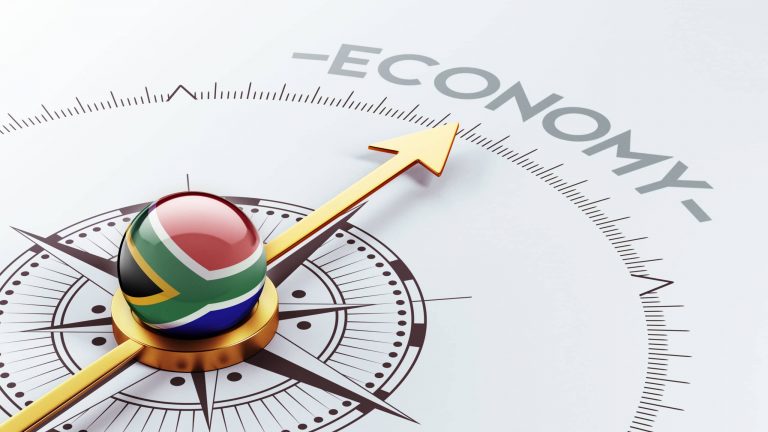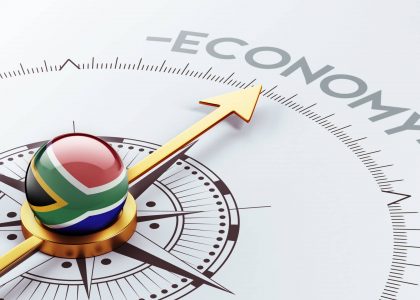In the wake of the US government credit rating downgrade, the global financial market is bracing itself for potential repercussions. South Africa, an emerging market economy, stands to face challenges due to its close ties with the US economy.
This article delves into the domino effect of the downgrade on South Africa and analyzes the potential implications including finance, trade, and investments. As investors scurry to reassess their risk appetite, currency fluctuations of the US dollar can impact South Africa’s exchange rates and, in turn, affect import and export capabilities. Furthermore, the downgrade may hinder the country’s borrowing capacity, potentially leading to increased interest rates. Stay tuned as we unravel the intricate web of consequences that this downgrading event may have on South Africa’s economic landscape.
A Closer Look at the Situation:
Fitch, one of the notable independent agencies responsible for evaluating creditworthiness, downgraded the US credit rating from the top AAA level to a slightly lower AA+ rating. This decision was based on a gradual decline in governance observed over the past two decades, which includes a significant and increasing government debt burden. In June 2023, the US government raised the debt ceiling significantly to $31.4 trillion (equivalent to R604 trillion), however, this move followed a contentious political struggle that posed a threat of default on the country’s debt. The rating agency further highlighted the rise in government deficit, which is expected to rise to 6.3% of GDP in 2023, from 3.7% in 2022. as well as a combination of tightened credit conditions, weakening business investment and a slowdown in consumption could lead to a mild recession later in the year.
In simple terms, credit ratings serve as a reference point for sovereign wealth funds, pension funds, and other significant investors to assess the level of risk associated with lending money to a government and companies. Generally, a lower rating for a borrower leads to higher financing costs, while the opposite is also true.
The US is typically viewed as an investment heaven due to the substantial size and relatively stable nature of its economy. Nevertheless, in the past years, the country witnessed a recurrence of political brinkmanship concerning government borrowing. This and other factors collectively contributed to the nation experiencing credit rating downgrades from rating agencies. Figure 1 below outlines the ratings given to the US by the three leading independent rating agencies over the last 15 years.
Figure 1

Source: Reuters and Credit Rating Agencies.
Days following the downgrade decision, there was a rapid decline in US stocks. For example, the S&P 500 was down by 0.8% and Nasdaq by 1.2% on the 2nd of August 2023. Furthermore, the impact of the rating cut was felt across global markets, as the Nikkei 225 index had its worst day of the year, ending down 2.3%, while Hong Kong’s Hang Seng (HSI) Index closed 2.5%, coinciding with the turmoil of the eurozone financial crisis. Therefore, gaining insight into the consequences of this rating downgrade on emerging economies like South Africa holds significant importance. Hence, this article seeks to explore the indirect ramifications of the US credit downgrade on South Africa.
The Effects of the Downgrade on the South African Economy
- The downgrade could significantly increase South Africa’s economic uncertainty.
“When the United States sneezes, the world catches a cold”. With this in mind, a US credit downgrade rating would contribute to heightened global economic unpredictability. This for instance could potentially lead to diminished investor trust and risk aversion, resulting in the sudden withdrawal of capital from emerging economies such as South Africa. Such a scenario could exert strain on the South African currency (the Rand), potentially resulting in the depreciation of the currency and increasing the likelihood of higher inflation. To give you a picture, in response to the announcement of the downgrade, the South African rand depreciated by approximately 1.4% against the US dollar, reaching a trading rate of R18.51/$ on Wednesday, August 2, 2023.
Furthermore, this move could exacerbate unemployment in a nation with the world’s highest unemployment rate as investors exercise greater caution and re-evaluate their investment strategies as they seek safer investment havens.
- Reduce South Africa’s exports and trade balance.
A weaker US economy resulting from a credit downgrade could significantly impact South Africa, given that the country’s largest trading partner is the US. Being the largest producer and exporter of commodities like metals, minerals, and agricultural products, South Africa could experience decreased global demand for these goods due to the credit downgrade in the US. Let me explain, this, for example, could stem from diminished US consumer spending and economic activity, ultimately impacting South Africa’s export revenues and trade balance adversely.
- Elevate the probability of systemic risk.
The 2008 global financial crisis showed us a glimpse of how interconnected financial markets are. A crisis originating from one market can significantly spread across the global market. As a significant player in the global market, a US credit downgrade could trigger a chain reaction, affecting interconnected financial institutions and markets across the world. This contagion effect for instance could lead to a significant increase in volatility in the South African financial markets. Allow me to present to you that the increased volatility could make investors hesitant to make investment decisions in South Africa, leading to reduced trading activity and potentially causing market crashes and slowdowns. This could trigger a chain reaction, affecting interconnected financial institutions and markets worldwide.
- Increase domestic interest rates.
As an exporter of inflation, a US credit rating downgrade could influence global interest rates. For instance, if the interest rates are increased by the Federal Reserve in response to high inflation caused by the credit rating cut, it may result in the South African Reserve Bank increasing the domestic interest rate as well to reduce imported inflation. This could lead to higher borrowing costs to other countries including South Africa, as global investors seek higher returns. In this case, the South African government and businesses could face higher borrowing costs, potentially affecting foreign direct investment and economic growth in the country.
- Impact South Africa’s Foreign Aid and Investment.
Given South Africa’s dependence on Foreign Direct Investment (FDI) to stimulate economic growth, enhance global competitiveness, and access international markets, the nation might encounter difficulties in attracting foreign investment should the financial stability of the US government come under scrutiny due to a credit rating downgrade. In such circumstances, international investors and institutions could exercise greater caution when it comes to extending financial assistance to emerging economies like South Africa within a less secure global context. This is particularly relevant as they seek out safer investment alternatives.
To sum up, a downgrade in the credit rating of the US government can trigger a series of repercussions on worldwide investment sentiment and actions. These outcomes can distinctly influence investment choices in South Africa, potentially resulting in decreased capital inflows, increase borrowing expenses, and alterations in investor inclinations. Therefore, South African officials must thoroughly evaluate the circumstances and implement suitable measures to alleviate any adverse effects on investment and economic expansion.





